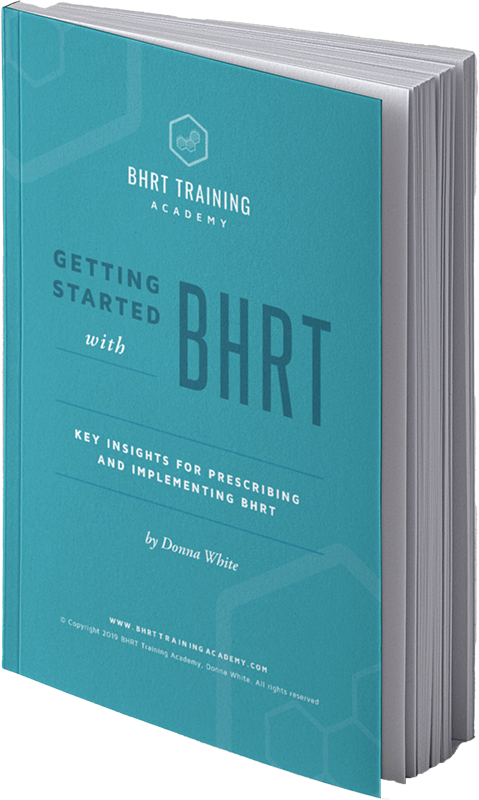Let’s Talk Thyroid Medication

Millions of people across the U.S. suffer from thyroid-related disorders, which can be managed through thyroid medication made of thyroid hormones. The careful administration of specific types of thyroid hormones can help reduce and reverse the symptoms of some thyroid conditions.
Hypothyroidism
Thyroid hormones are connected to almost every other system in the body and other hormone systems, including neurotransmitters, reproductive hormones, and the adrenal system. When one is out of balance, it can throw the others off as well, creating a cascade of symptoms that can be debilitating.
With even a small hormonal imbalance in the thyroid, even a little bit, people can suffer from a range of symptoms.
Hypothyroidism occurs when the thyroid is not producing enough hormones. Symptoms of hypothyroidism can be broad and, without a thorough thyroid panel, can be challenging to diagnose. Hypothyroidism can affect sex hormones, cortisol production, and insulin sensitivity.
Conditions Associated with Hypothyroidism:
- Low blood pressure
- Slow heart rate
- Constipation
- Menstrual irregularities
- Infertility, premenstrual syndrome
- Feeling cold
- Fibromyalgia
- Fibrocystic breasts
- Depression/anxiety
- Diabetes
- Digestive problems (e.g.: (leaky gut, constipation)
- Fatigue
- Hair loss
- Weight loss or gain
Reproductive symptoms resulting from either hypo or hyperthyroidism include irregular menstrual patterns, worse PMS, infertility, and polycystic ovary syndrome.
Where hypothyroidism describes an underactive thyroid, hyperthyroidism can also be the case, where the thyroid is producing too many thyroid hormones. Some symptoms of hyperthyroidism can swing towards the opposite of hypothyroidism, where there is, for instance, rapid heart rate instead of slow, and nervousness instead of fatigue.
It is possible that people taking thyroid medication in incorrect dosages can swing too far over to hyperthyroid if they are hypothyroid, and vice versa, in this delicate balance.
Regular hormone testing allows practitioners to offer the proper medication in adequate doses and adjust it when needed.
Medication for Thyroid Disorders
There are various thyroid medications on the market. The type of symptoms a person has will help determine which type is optimal for them.
Conventional doctors often only test for Thyroid-Stimulating Hormone (TSH). It used to be thought that TSH should be under 10mlU/L, but some endocrinologists and functional practitioners (Endocrine Society) now would consider a typical range from between .3 and 3.0 MlU/L. Some practitioners consider TSH greater than 2.0 less than optimal. If a person’s TSH appears to be in a normal reference range, the doctor may not continue to test for thyroid problems, even though other hormones might be out of balance, or they may consider the optimal range too broad.
It’s also important to test free T4 and T3 relative to each other.
Factors That can Inhibit T4 to T3 Conversion
- Vitamin and mineral deficiencies (Zinc, Copper, A, B3, B6, B12, C, E, Selenium, Chromium, and iron)
- Excess Alpha Lipoic Acid, Copper, Calcium, Epinephrine, Norepinephrine levels.
- Elevated cortisol
- Heavy metals
- Elevated reverse T3
- Aging and diabetes
- Inflammation
- Fasting, illness and alcohol use
- Low progesterone
- The use of Amiodarone and Beta-blockers
If a thyroid problem is suspected, practitioners should do a full thyroid lab which includes all the thyroid hormones and measures them relative to each other.
Lab Testing – Optimal Ranges
TSH: 0.4-1.9 mIU/L (Endocrine Society “normal” range is 0.3-3.0)
Free T4: high middle to high normal range
Free T3: 3.5-4.3 pg/ml
Reverse T3: lower half of normal range
TPO: within normal lab range
Treating Thyroid Problems with Medication
There are several different medications on the market today which are used to treat thyroid problems, classified into four main categories. Prescriptions should be based on a patient’s full thyroid panel and regular testing.
Synthetic T4 Medications
Synthetic T4 medications are widely prescribed for a variety of thyroid health issues. Common brand names include Levothyroxine, Synthroid, and Levoxyl. This can be useful in cases where the body is prepared to convert T4 to T3 properly. Unfortunately, if the thyroid is not functioning properly, many people aren’t able to convert T4 to T3 at the appropriate rates. This means that T4-only medications can also lead to an imbalance and continued symptoms of thyroid problems if they aren’t administered carefully.
When T4-only medications aren’t effective on their own, a practitioner may want to move to either trying a T3 medication or a T3 and T4 combination medication.
Synthetic T3 Medications
T3 medications are not as commonly prescribed as T4 medications. However, they might be a good choice for people with certain conditions, such as reverse T3 problems. When people can get enough T3, this can reduce the need for T4. Cytomel is a common brand name of T3 medication.
Natural Desiccated Thyroid
Natural Desiccated Thyroid (NDT) drugs are a prescription hormone treatment derived from natural sources, which are typically animals. In the United States, NDT is exclusively formulated from pig thyroid glands of pigs. There are multiple brands of NDT, including Nature-thyroid, Thyroid WP, Armour, and Acella. This is a promising and effective treatment, yet few doctors are using it currently.
Because NDT closely resembles human thyroid hormones, it is easier for the body to process. This medication is also highly customizable allowing for unique formulations of T4, T3, T2, T1, and other thyroid hormones and nutrients to be easily incorporated into the same treatment. It is also important to note that NDT is regulated by the FDA and undergoes rigorous quality assurance testing.
Compounded T4 and T3
With compounded T4 and T3, patients can receive the specific quantities of hormones needed for their unique situation, making it one of the most accurate and effective ways to offer hormonal support for the thyroid. This approach is preferred for some practitioners because it offers patients the opportunity to have a specialized dosage created in a compounding pharmacy. This also eliminates the potential of including thyroid-inhibiting substances such as lactose and gluten, common in many medications. Patients who have not done well using T4-only formulations or NDT frequently benefit from a specific compound treatment.
Learn to Administer Bioidentical Hormones for Thyroid Support
Health practitioners seeking alternative care models can learn how to administer BHRT to offer patients symptom relief and improve their quality of life.
Ready to learn more about how BHRT could fit into your practice? Click here to schedule a strategy call and get started.
Enjoyed this article? Here are three more to help:

Get the quick read ebook,
Getting Started with BHRT -
Key Insights to Prescribing and Implementing BHRT.
CME's - Earn while you learn.
